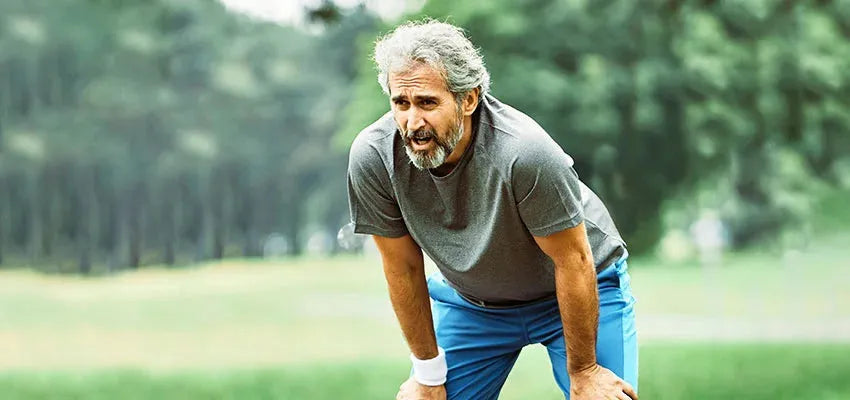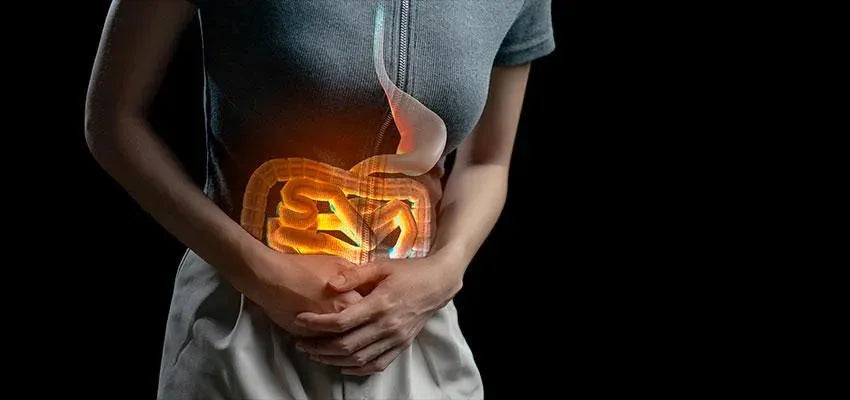
Does energy level decrease with age?
Feeling tired and getting older are closely associated. You are not alone if you find yourself frequently dozing off in front of the TV or telling yourself, "I don't feel energetic as before." So, what are the leading causes for decline in energy reserves as we grow older?
Cellular aging is one crucial element that makes you feel tired as you age. The body's cells lose effectiveness and function as they get older. While genetics plays a role in how quickly cells age, our lifestyle also has a significant impact upon it.
Aging is defined as the process of getting older or developing features and traits associated with aging like wrinkling of the skin, bones shrinking in size and density, cardiovascular problems, digestive problems, etc.
Does energy level decrease with age?
Usually, our genes and the external environment play a key role in bringing about alterations in cells that cause the muscles to lose mass and strength, leading to decreased flexibility. This is the primary reason why we feel tired after engaging in even a little bit of strenuous activity.
Aging involves many interrelated processes and there are different theories as to why people age. As a major factor in the energy decline with aging, the Mitochondrial Free Radical Theory of Ageing (MFRTA) has gained prominence in recent years. According to this theory, mitochondria which is the powerhouse of cells, generates the energy molecule adenosine triphosphate (ATP) during aerobic respiration. This process releases free radicals that cause oxidative damage to cells, especially the mitochondria.
Additionally, the external environment such as pollution, toxins, sun damage, etc. quicken the process of production of these free radicals. With advancing age, the number and efficiency of mitochondria decreases, resulting in insufficient energy production. Thus, mitochondrial damage is the root cause of low energy levels in aging.
Signs of aging
Few tell-tale signs as we age become evident on our bodies externally. Some of these signs are:
- Crow’s feet (fine wrinkles that develop at the corners of the eyes due to smiling or squinting)
- Age-related spots
- Droopy eyelids
- Laugh lines
- Wrinkles on forehead
- Frown lines
- Dull and uneven skin tone
- Visible and open pores
- Sagging skin
Why do we have less energy as we age?
There are several reasons for low energy in our body as we age. Listed below are some of the physical causes of having low energy:
- Restricted blood flow: With advancing age, the inner walls of the blood vessels tend to accumulate fatty deposits that make them thicker and stiffer. There is loss of elasticity, as a result of which these blood vessels are no longer able to relax. It may lead to common problems such as increased blood pressure, angina, atherosclerosis, etc. This makes the heart less capable of performing physical exercises and a gradual decline in energy and endurance levels is observed, making us feel easily fatigued.
- Poor sleep patterns: Increasing age tends to take a toll on our circadian cycle, causing us to have irregular sleeping habits. We no longer find ourselves in deep sleep; instead poor sleep patterns become the norm. A restless night with frequent waking spells leaves our body with reduced energy levels. Although the primary reason behind its occurrence is not fully known, it may be caused due to a natural decrease in the levels of the sleep hormone, melatonin.
- Muscle mass decline: Muscle mass decline with age is a very common observation, where the muscles get replaced by fatty tissues. Due to the shrinkage of muscles, there is loss of strength and flexibility. A person becomes tired very easily and by the time you turn 70 years, there is a loss of muscle coordination and a person may have trouble in maintaining balance.
- Decline in bone size and density: Bone density decline with age is a common problem, contributing to tiredness. Around the age of 35 years, bones start losing density and this process gradually gains momentum as the age progresses. In women, this is more pronounced after attaining menopause due to a deficit in the protective hormone, estrogen. Decline in bone density makes the bones weaker and more likely to suffer fractures. As the joint movement becomes restricted and the overall skeletal system loses flexibility, it may result in a stooped posture. Restricted joint movement happens due to wear and tear of the cartilage present in between the joints and bones.
- Slower metabolism: Changes in the hormone levels cause body fat to accumulate, in place of the muscle mass. Fat also moves deep into our body with advancing age, thereby increasing the chances of diabetes and heart disease. Such chronic ailments make a person feel tired easily.
- Improper digestion: Consumption of a poor diet is the main cause of body fatigue and tiredness. With advancing age, the bowel movement becomes slower as the speed of contractions lower. This leads to constipation, marked by painful and infrequent bowel movements. There are also chances of developing lactose intolerance as the body produces decreased amounts of the enzyme, lactase that helps in digestion of milk and other dairy products. As a result of this, a person may develop bloating and gas.
- Medical illnesses: Certain medical conditions can leave the body feeling fatigued. These include hypothyroidism, anemia, rheumatoid arthritis, etc. If a person is suffering from a heart ailment, it inevitably leads to fatigue and tiredness as the heart is unable to pump blood efficiently, leading to fluid accumulation inside the lungs and consequently, results in shortness of breath.
- Mental health: A sound mind is indeed required to maintain a healthy body. If you feel stressed, it will directly affect your sleep patterns, leading to fatigue. Sometimes, episodes of grief such as the loss of a loved one can also cause sleep deprivation. Maintaining good sleeping habits is very essential for overall mental well-being.
It is vital to keep your energy levels intact to lead a productive, healthy life as you age. Although nobody can stay as energetic and active as they were during their younger years, the decline in energy levels can be delayed. Despite keeping the above factors in mind, if you still feel exhausted for unknown reasons, it is best to consult a medical expert for proper advice and guidance.


